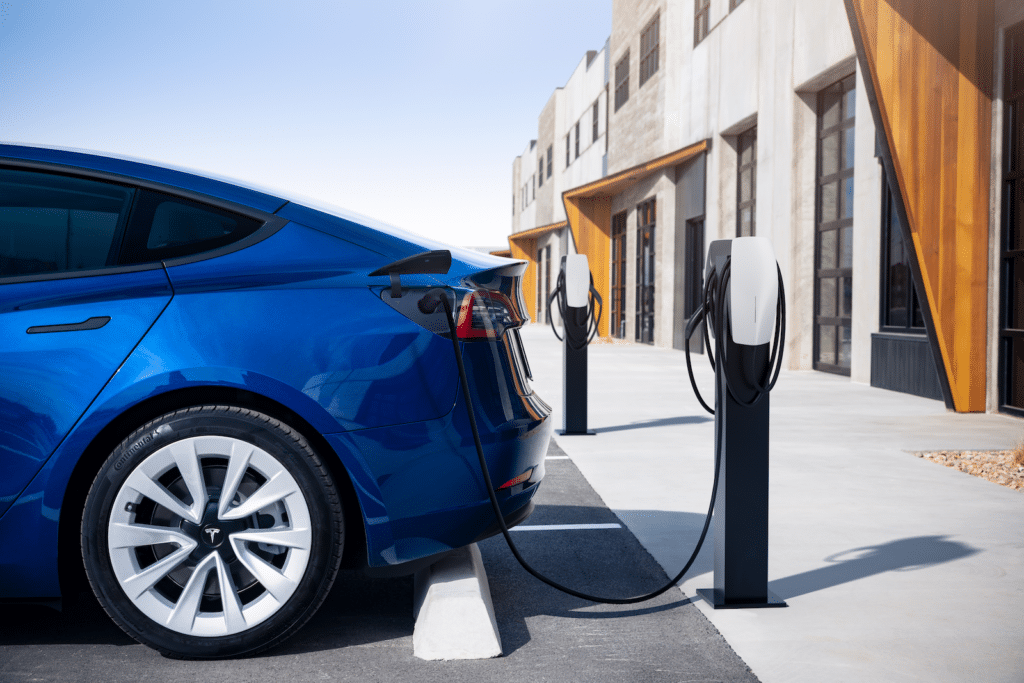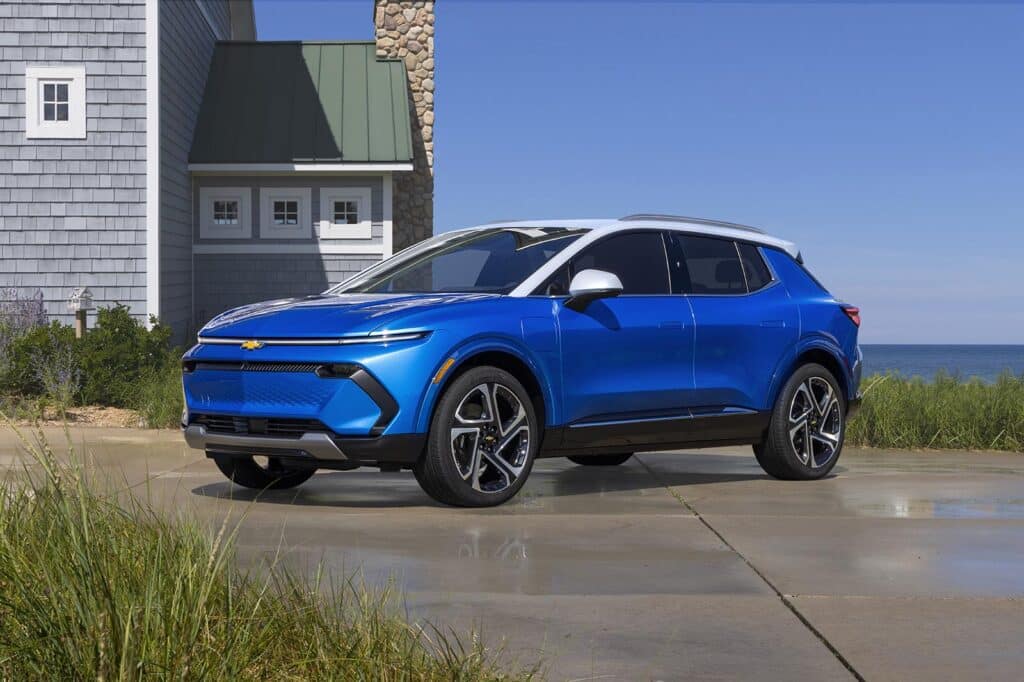EV Prices Fall But Still Too Costly for Many Mainstream Buyers
EV buyers finally are catching a break, as a newly released study showing the price U.S. motorists paid for battery-electric vehicles tumbled sharply over the past year.

With a mix of price cuts, dealer discounts, new models and increased production, the average cost of an EV purchased by U.S. motorists last month tumbled to $53,469, about $8,000 less than last year’s peak, according to a new report by Cox Automotive. Meanwhile, the price gap between the average EV and gas model has tumbled by more than 70%. But experts caution that, even with the latest, downward trend, EV prices still need to come down more to be embraced by more mainstream shoppers.
“The year-over-year decline of EV ATPs (average transaction prices) has been led by Tesla slashing prices on its popular models,” said Rebecca Rydzewski, Cox’s research manager.
Price war
In turn, that has triggered an industry-wide EV price war. Ford last month slashed the price of its F-150 Lightning pickup by as much as $9,979, and had earlier trimmed the price of its Mach-E SUV. General Motors reduced the base price of the Bolt by as much as $6,300. And EV startup Lucid this month cut the price of its high-performance Air sedan by as much as 11%, or up to $12,550.
Average EV prices peaked in June 2022 at $66,135, according to Cox. That slid to around $61,000 in January and has continued falling ever since, to just $53,469 last month, the tracking service reported.

There’s another way to measure the downward trend. A year ago, the average transaction price for an EV was about $18,000 more than the overall industry average or $48,016. Last month, the gap shrank to just $5,000, with the industry-wide ATP rising to $48,334.
Newer, cheaper EVs
Along with factory discounts, a variety of factors have been driving down EV prices. For one thing, automakers have been launching a variety of new models. And while some are pushing into the automotive stratosphere — the new Cadillac IQ debuting on Wednesday set to start well over $100,000 — others are targeting more mainstream pricing.
And still more affordable options are on the way. Chevrolet is working up an all-electric version of its familiar Equinox SUV that, CEO Mary Barra has promised, will start “around $30,000.” And Barra last month revealed that an all-new version of the Bolt is in development that will dip into the $20,000 range.
Economies of scale

Economies of scale are also coming into play. Ford originally tooled up its Rouge Electric Vehicle Center in Dearborn, Michigan to roll out 25,000 Lightnings annually. By the end of this year, it will complete upgrades boosting the run-rate to 150,000 units yearly. And it’s driving up production of the Mach-E.
Segment leader Tesla has not only shown that EVs can be profitable but shown that they can be significantly simpler to produce than today’s gas- and diesel-powered models.
“They are 30% more efficient to build” than vehicles using internal combustion engines, said J.D. Power analyst Tyson Jominy.
Fisker PEAR
Tesla, for example, has replaced scores of individually stamped and then welded steel parts with single large-scale castings. Nascent EV maker Fisker claims it will eliminate 35% of the parts once needed when it launches the PEAR — short for “Personal Electric Automotive Revolution” — crossover mid-decade.

But prices still aren’t falling fast or far enough, cautioned Power analyst Jominy. A key challenge is the battery pack. GM expects to see the cost of the batteries in the next-gen Chevy Bolt drop from a current $150 per kilowatt-hour to around $87. If the new model retains the 66-kWh size of the outgoing EV that would yield a roughly $4,000 savings.
But automakers are responding to demands for longer range by installing ever-bigger packs. That Cadillac Escalade IQ will get up to 450 miles per charge — but will require over 200 kWh of batteries.
Headwinds ahead
And commodity prices create a major uncertainty. Lithium prices jumped tenfold last year, as it became apparent there could be a shortfall of supply as the auto industry ramps up for 50% EV sales by 2030. Prices have since fallen back a bit, but at anywhere between $20,000 and $40,000 a ton, lithium is still substantially more expensive than a few years ago.
One way automakers are countering the commodity pricing issue is to seek alternatives to today’s lithium-ion technology. Tesla is using cheaper lithium-ion-phosphate cells on some of its shorter-range models, and Ford is one of several automakers planning to adopt that strategy. Meanwhile, Toyota laid out a plan to launch the first next-gen solid-state batteries shortly after mid-decade. If they prove out, solid-state cells could reduce costs to as little as $50 a kWh, according to experts.
One way or the other, “We will need to see (more) EVs come down into the low to mid-$30k range before incentives,” and even into the $20,000 range if they’re to click with mainstream buyers, said Sam Abuelsamid, principal auto analyst with Guidehouse Insights.
Auto Lovers Land
Comments
Post a Comment